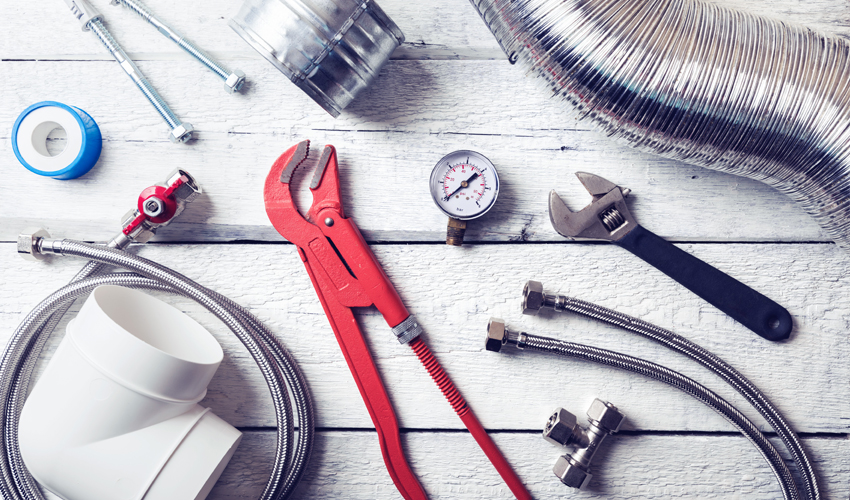DIY Tips to Cleaning Your AC Unit's Drain Tube

It can happen to anyone. You’re walking through your home, when suddenly – splat! Your feet splash into a gross, wet puddle on the floor. What happened? Unless your pet has a bladder control problem, it’s more than likely a clog in your AC unit’s drain line. Your AC doesn’t just cool your home, it also controls humidity, condensing moisture in the air and shuttling it outdoors through a small pipe called a drain line tube. Mucus-like algae, mold, mildew, and even ice in extreme temperatures, can build up inside your condensation drain line forming a clog that causes water to back up into lines, your AC unit, and eventually your home. If you need a flotation device to traverse your carpet, the AC condensate drain line is a likely culprit.
The AC drain line should be located near the outside unit, leading from your AC unit’s evaporator coil. It is typically a ¾-inch PVC pipe – however, some drain lines may be copper.
Feeling Brave Enough to Combat Your Own Clog?
- Locate your condensate drain line.
- Using a wet/dry vac you’ve previously removed the paper filter from, connect the attachment from the vacuum to the drain line using duct tape or simply wrap a cloth tightly around it with your hand.
- Run the wet/dry vac for a few seconds to a few minutes until the drain is clear.
Using Bleach in Your AC Drain
After the gunk has been removed from your drain line, get in the habit of performing a little DIY maintenance. Simply open up the drain line clean out or T on your inside unit and pour a 50/50 warm water and bleach mixture OR warm water and vinegar solution through the line. Be sure to use a minimum of 2 cups once or twice per year. Be advised, however, that some newer units no longer recommend bleach or vinegar due to oxidation/degradation concerns. In these cases, boiling water is recommended.
Preventing Future Clogs
If you don’t want to fork out tons of dough to repair water damage in your home, it would be a wise idea to perform a little maintenance on your AC drain lines.
- Keep your pitch. Drain lines should be properly angled down and kept clear of mud, grass, and debris for water to flow out properly.
- Flip the switch. Installing a safety switch to automatically turn off your AC whenever the drain line clogs can help you avoid expensive water damage.
- Schedule it out. Regular, professional maintenance not only keeps your system running at peak performance but can catch messy drain line clogs and other issues before they occur.
 Click to call
Click to call


